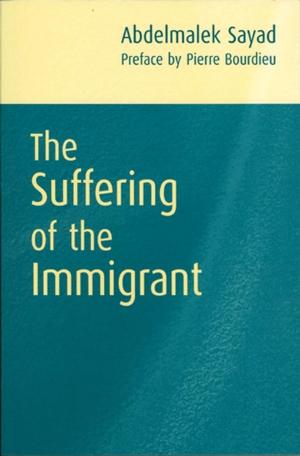International Relations
Nonfiction, Social & Cultural Studies, Political Science, International, International Relations| Author: | Stephanie Lawson | ISBN: | 9781509508594 |
| Publisher: | Wiley | Publication: | January 19, 2017 |
| Imprint: | Polity | Language: | English |
| Author: | Stephanie Lawson |
| ISBN: | 9781509508594 |
| Publisher: | Wiley |
| Publication: | January 19, 2017 |
| Imprint: | Polity |
| Language: | English |
International Relations emerged as a distinct academic discipline in the early twentieth century, but its philosophic foundations draw on centuries of thinking about human nature, power and authority, justice and injustice, and their implications for relations within and between political communities.
In this fully revised and updated third edition of her popular text, Stephanie Lawson retains a broad historical and contextual approach in introducing readers to the central themes and theoretical perspectives in IR while also addressing key issues and challenges in the contemporary period. These include the emergence of states and empires, theories ranging from classical realism and liberalism to postcolonial and ‘green’ theory, twentieth-century international history, security and insecurity, global governance and world order, international political economy, globalization, the future of the sovereign state and the prospects for a ‘post-international’ world.
Written in an accessible narrative style, this book is an ideal primer for students at undergraduate level and beyond, including those undertaking postgraduate study in IR with little or no previous academic training in the field.
International Relations emerged as a distinct academic discipline in the early twentieth century, but its philosophic foundations draw on centuries of thinking about human nature, power and authority, justice and injustice, and their implications for relations within and between political communities.
In this fully revised and updated third edition of her popular text, Stephanie Lawson retains a broad historical and contextual approach in introducing readers to the central themes and theoretical perspectives in IR while also addressing key issues and challenges in the contemporary period. These include the emergence of states and empires, theories ranging from classical realism and liberalism to postcolonial and ‘green’ theory, twentieth-century international history, security and insecurity, global governance and world order, international political economy, globalization, the future of the sovereign state and the prospects for a ‘post-international’ world.
Written in an accessible narrative style, this book is an ideal primer for students at undergraduate level and beyond, including those undertaking postgraduate study in IR with little or no previous academic training in the field.















